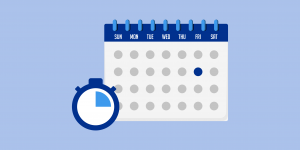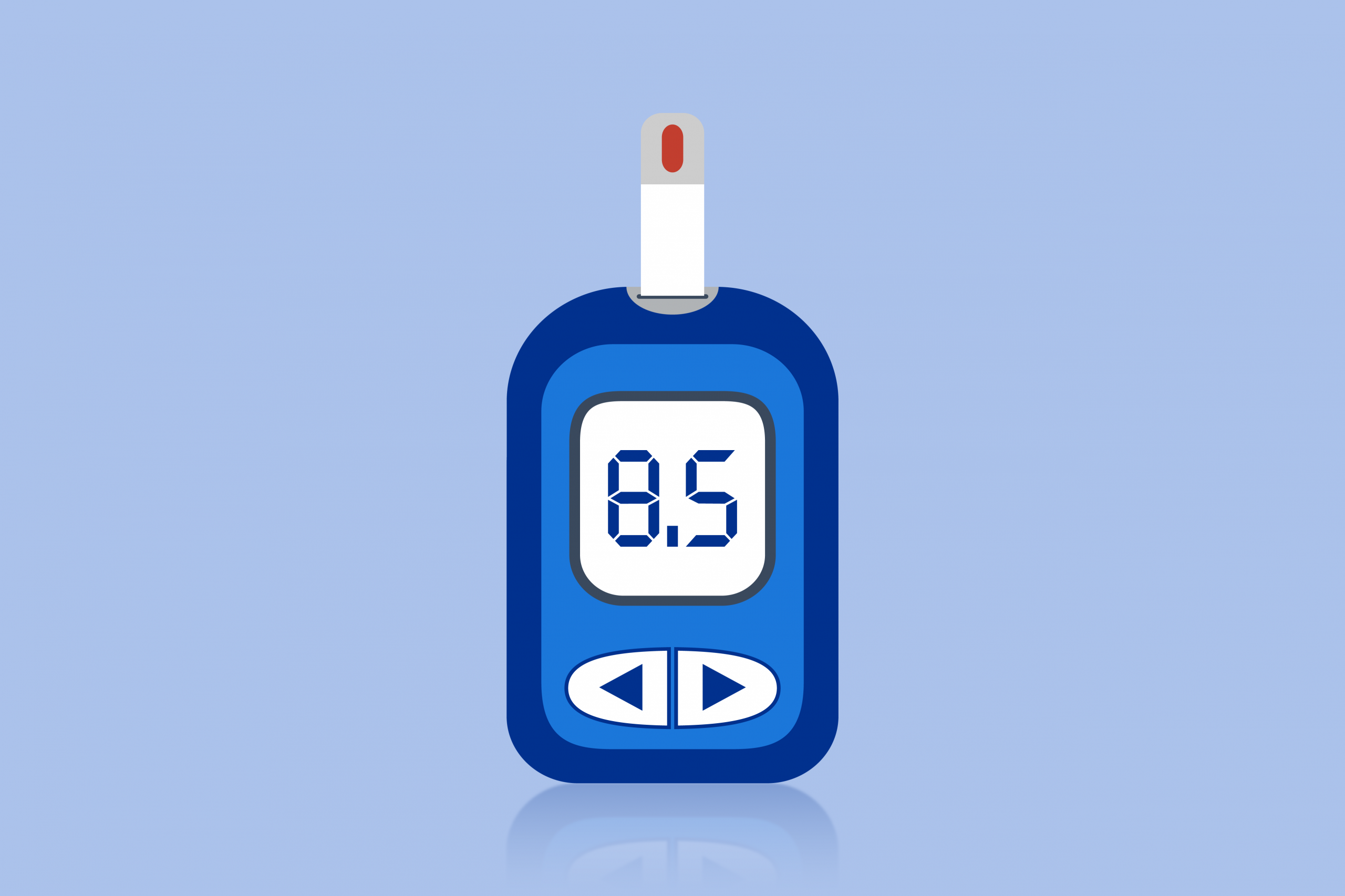Key Takeaways
- Complex Interplay: There is a complex relationship between diabetes and sleep. Lack of sleep can increase the risk of developing type 2 diabetes, and obesity, which is a common risk factor for diabetes, is also linked to poor sleep. Additionally, diabetes itself can lead to various sleep-related problems.
- Sleep and Obesity Connection: Poor sleep can contribute to weight gain, which is a significant risk factor for type 2 diabetes. Sleep deprivation can lead to reduced physical activity, unhealthy food choices, increased calorie intake, and hormonal changes that promote weight gain.
- Impact on Blood Sugar: Diabetes, especially when not well-managed, can disrupt sleep through conditions like sleep apnea, peripheral neuropathy, restless leg syndrome, and fluctuations in blood sugar levels. Managing blood sugar through diet, medication, exercise, and monitoring is essential for both diabetes management and improving sleep quality.
It’s probably far from obvious, but your diabetes could be the reason that you’re having trouble sleeping.
Type 2 diabetes affects nearly 30 million Americans—and the numbers are growing. Though most of us are aware that the disease has a serious impact on a person’s diet and blood sugar, fewer are familiar with the many related health woes that diabetes can cause—and how they can negatively impact sleep.
Take a closer look at the surprisingly intricate relationship between diabetes and sleep—plus how people with the condition can get a better night’s rest.
Diabetes and Sleep: A Vicious Cycle?
The relationship between diabetes and sleep is complicated, and experts still have a lot to learn about how the whole thing works. What they do know? How much sleep you get could play a role in whether you develop type 2 diabetes in the first place, along with other factors like obesity.
Sleep and Obesity
There’s a growing connection between sleep and obesity. Why is this connection important? Because being overweight is a major risk factor for type 2 diabetes. (Believe it or not, up to 90% of people who are diagnosed with the disease are also obese.) What’s more, evidence shows that there are several ways that skimping on sleep could lead to weight gain:
- When you’re zonked, you don’t have the energy to exercise. Research suggests Verified Source American Academy of Sleep Medicine Society focused on sleep medicine and disorders, and the AASM is who authorizes U.S. sleep medicine facilities. View source that people who stay up late spend more time sitting than people who wake up early.
- Feeling tired means you’re less likely to make healthy food choices, too. When you’re exhausted, pizza or takeout just feel easier (and more tempting) than a big kale salad.
- Staying up late means more time to eat. People who stay up into the wee hours at night have been found to eat 550 more calories than those who go to bed early.
- Lack of sleep messes with your hormones. Sleep deprivation causes your body to pump out more of the stress hormone cortisol, which is linked to weight gain. You’re also flooded with more of the appetite-stimulating hormone ghrelin.
Sleep and Diabetes
There’s more to the picture than just gaining weight from a lack of sleep. As you start to build up a sleep debt, your blood sugar starts to increase. And though experts have known about the relationship between sleep deprivation and blood sugar for years, they’re only now beginning to understand exactly how it works. New research suggests that not getting enough sleep can increase levels of free fatty acids in your blood.
Those high fatty acid levels seem to reduce sensitivity to insulin, the hormone that helps your body regulate blood sugar, as well as hamper your body’s ability to metabolize fat.
What’s more, it doesn’t take long for these effects to take hold: Just one night of shortened sleep was shown to increase those harmful fatty acids by a whopping 30%, and decrease study participants’ ability to regulate blood sugar by nearly a quarter. In other words, even burning the midnight oil just once in a while could be doing more to raise your diabetes risk than you probably think.
“Sleep is a circadian behavior and it is therefore not surprising that the circadian clock plays a critical role in regulating functions controlling both sleep and metabolism,” notes Dr. Nayantara Santhi. “As a result, disruption of the circadian clock, for example, such as not sleeping at the right time predisposes one to metabolic disorders such as obesity and type 2 diabetes. This is why night shift workers are at risk for such conditions.”
How Diabetes and High Blood Sugar Affects Your Sleep

To make matters worse? Having diabetes usually makes quality sleep even more elusive. Here’s how:
- Sleep Apnea: Many people who have type 2 diabetes also suffer from sleep apnea. When untreated, pauses in breathing can cause people to wake up hundreds of times throughout the night.
- Peripheral Neuropathy: Nerve damage in the legs or feet is common among people with diabetes, and can lead to tingling, numbness, burning, or pain that can make it tougher to doze off.
- Restless Leg Syndrome: Another condition common among those with diabetes, RLS can cause feelings of needing to move your legs while sitting or lying down, which can make it harder to fall or stay asleep.
- High or Low Blood Sugar: Both can make it difficult to achieve restful sleep. Too-high blood sugar can leave you feeling hot, irritable, or unsettled. Blood sugar that’s too low could result in nightmares, or cause you to wake up feeling sweaty or clammy.
- Nocturia: Nocturia, Verified Source National Library of Medicine (NIH) World’s largest medical library, making biomedical data and information more accessible. View source or nighttime urination, is a common problem among diabetics that’s usually the result of uncontrolled blood sugar. Having higher amounts of sugar in your urine may cause you to wake up and have to go more frequently during the night.
Smart Sleep Solutions for Diabetics

The bad news is that having type 2 diabetes can lead to several complications that can make adequate sleep harder to come by. The good news? Since doctors know so much about the things that can cause sleep problems for diabetics, there are plenty of solutions that may help you snooze better.
If you have sleep apnea, finding a treatment option that works for you can lead to more restful sleep. For many people, that means getting fitted for a CPAP machine that helps keep your airway open, eliminating snoring or disruptive pauses in breathing. If you’re overweight, losing weight may help ease sleep-stealing snoring, too.
Conditions like peripheral neuropathy and restless leg syndrome can often be managed with medication. If you experience pain in your legs or feet, your doctor can help you find a pain reliever to eradicate the discomfort or make it more tolerable.
Muscle relaxers or medications that boost dopamine levels in the brain can help with restless leg syndrome, too. However, since RLS is often associated with too-high blood sugar, managing your blood sugar may be another way to ease symptoms.
Keeping your blood sugar under control can also help stave off other glucose-related sleep issues, too, such as frequent nighttime urination or nighttime discomfort. It’s important to work with your healthcare team to learn how to best manage your blood glucose levels. But in general, good blood glucose management Verified Source Mayo Clinic Ranked #1 hospital by U.S. News & World Report and one of the most trusted medical institutions in the world. The staff is committed to integrated patient care, education, and research. View source usually includes:
Eating the Right Foods and Planning Balanced Meals
 Learn how many carbohydrates are right for you, and stick to healthy sources like fruits, vegetables, and whole grains. (Some of which might even improve your sleep.)
Learn how many carbohydrates are right for you, and stick to healthy sources like fruits, vegetables, and whole grains. (Some of which might even improve your sleep.)
Eating the right amount of carbs coupled with protein and fat can help keep your blood sugar levels from spiking or dipping. However, you may want to keep a selection of carefully prepared snacks nearby in a bedroom mini fridge.
Taking Your Medications at the Right Time

Talk with your doctor to determine the best times to take your insulin. According to the American Diabetes Association, regular insulin shots are best when they can work with your food to supplement the glucose as it enters your bloodstream.
Being physically active can help keep blood sugar levels in check. Plus, regular workouts can help you sleep better, too.
Monitor Your Blood Sugar Levels
 Keeping tabs on your blood sugar means you can take steps to manage highs or lows before they become serious.
Keeping tabs on your blood sugar means you can take steps to manage highs or lows before they become serious.
Perhaps most important of all? If you have diabetes and are experiencing sleep problems, talk with your doctor. Together, the two of you can develop a strategy to help you better manage your condition—while achieving the rest that you need.
Frequently Asked Questions
How can diabetics sleep better?
Many of the generalized sleeping tips we offer can help a person with diabetes sleep better at night. Regular exercise, curbing your caffeine intake later in the day, setting up the bedroom to promote rest, and shutting off your screens to relax before bedtime can help most people sleep better.
People with diabetes will also need to watch their diet and blood sugar levels, as fluctuating blood sugar levels can upset their sleep schedule.
Does diabetes cause sleep problems?
Yes, having Type 2 diabetes has been linked to sleep difficulties, and comorbid conditions like sleep apnea or restless legs syndrome can also make it harder for a diabetic to fall asleep. The link goes both ways, as having poor sleep habits can also increase your risk of developing type 2 diabetes.
Speaking with a doctor or sleep specialist can help you determine how to best manage your diabetes or other related sleep disorders.
Does low blood sugar make you sleepy?
Low blood sugar can cause fatigue, though other potential symptoms include hunger, trembling or shakiness, sweating, or even confusion and difficulty concentrating. The fatigue can linger even after a person with diabetes has been treated for low blood sugar. Sleepers may also wake up in the middle of the night if they have low blood sugar.
What is a good snack before bed for a diabetic?
When it comes to late night snacks it’s best to keep them light, and that applies to diabetics, too. The key is to go for something high in protein and low in fat, something that will help your blood sugar levels remain stable as you sleep.
Good snacks include nuts, seeds or chickpeas; eggs, whole-grain crackers with low-fat cheese; vegetables low on starch like cucumbers, cherry tomatoes, or carrots; and popcorn.
How many hours of sleep does a diabetic need?
An adult with diabetes needs the same amount of sleep as other adults, which is 7 to 9 hours a night. However, their medical condition can make it more difficult to get a full night’s rest. It’s important to try and maintain a consistent sleep schedule by falling asleep and waking up at roughly the same time every day, even on days off.
Conclusion
The intricate relationship between diabetes and sleep underscores the importance of addressing both issues for overall health and well-being. It’s clear that sleep plays a pivotal role in diabetes risk and management, with insufficient sleep contributing to weight gain and insulin sensitivity. On the flip side, diabetes itself can lead to various sleep-related challenges, from sleep apnea to restless leg syndrome.
The good news is that by recognizing this bidirectional relationship, individuals with diabetes can take proactive steps to improve their sleep quality and diabetes management. This might include lifestyle changes like maintaining a healthy weight, regular exercise, and a balanced diet, which not only benefit diabetes control but also promote better sleep.
Furthermore, seeking medical guidance for specific sleep-related issues, such as sleep apnea or neuropathy, can make a significant difference in sleep quality and overall health. Monitoring and managing blood sugar levels consistently also remain essential components of diabetes care.
About the author
Marygrace Taylor is an award-winning health writer for Amerisleep. Her commitment to sleep health is evident in her ability to consistently prioritize eight hours of sleep each night. Her in-depth interviews with industry experts, such as Ken Ceder on "Why Light is Essential for Great Sleep and Optimum Health," highlight her dedication to delivering valuable insights. Marygrace's work has been featured in reputable publications like Business Insider, Glamour, Refinery29, Metro UK, and Hunker, further solidifying her expertise in the field.
View all posts


